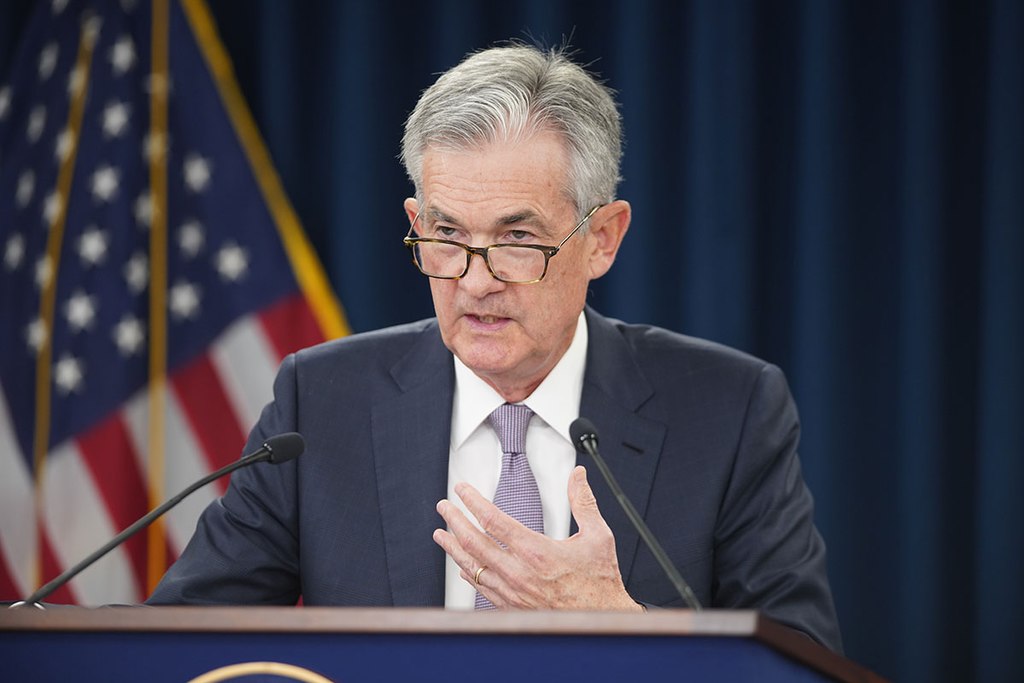Federal Reserve Chair Jerome Powell is steering the institution into a new era, one defined by restraint and a focus on traditional monetary policy. After nearly two decades of unconventional measures, the Fed is retreating from its outsized role in economic policy and adopting a simpler, more targeted approach. Analysts argue this shift reflects a healthier economy but warn of potential challenges under the incoming Trump administration’s economic agenda.
For years, the Fed played a central role in the U.S. economy, deploying trillions of dollars in emergency measures during the 2007-2009 financial crisis and the COVID-19 pandemic. Powell’s tenure has seen a pivot to stabilizing inflation and reducing the Fed’s balance sheet, signaling a return to pre-crisis normalcy. Former St. Louis Fed President James Bullard noted, “It’s kind of plain vanilla in that respect. Times have changed.”
This evolving policy framework is central to a conference in Washington this week, where experts, including Powell allies, will discuss the Fed’s strategy to sustain price stability and employment.
Inflation Battles and Reduced Intervention
Super-Low Rates No Longer Needed
The Fed’s aggressive rate hikes in 2022 and 2023 marked a sharp departure from the ultra-low rates that defined the past decade. Analysts suggest that inflation pressures, while under control, remain elevated enough to keep rates above historic lows. Powell has indicated the Fed’s ability to manage the economy through traditional rate adjustments, reducing reliance on the unconventional tools used during the Great Recession.
TradeStation strategist David Russell remarked, “The economy and stock market simply don’t require super-low rates anymore. Trade and tax policy will probably matter more than monetary policy going forward.”
Preemptive Policy Actions Regain Favor
Economists are advocating for a return to pre-crisis practices, emphasizing the importance of controlling inflation before it destabilizes the economy. Research from the Brookings Institution highlights the necessity of preemptive monetary actions, urging the Fed to avoid relying on policies that prioritize a “hot labor market.”
Social Media Reacts to Powell’s Vision
The Fed’s new direction has ignited conversations across social media, with reactions ranging from cautious optimism to outright skepticism:
- @EconWatcher: “Powell’s ‘boring’ Fed might just be what the U.S. needs. Stability over fireworks! #MonetaryPolicy”
- @InvestorAlarmed: “How does Powell plan to handle Trump’s trade policies? Tariffs could disrupt this so-called stability.”
- @PolicyPragmatist: “We’re finally moving back to basics, but inflation’s ghost isn’t gone yet. Stay vigilant.”
- @FedCritic: “Recession risk isn’t off the table. Are we sure ‘boring’ is the answer?”
- @MarketOptimist: “A simpler Fed means more room for private sector growth. Let’s embrace this new chapter.”
- @SkepticalTrader: “Powell’s ‘plain vanilla’ strategy sounds good until the next crisis hits. What then?”



 Strait of Hormuz Oil and LNG Shipments Disrupted After U.S.-Israel Strikes on Iran
Strait of Hormuz Oil and LNG Shipments Disrupted After U.S.-Israel Strikes on Iran  China’s New Home Prices Post Sharpest Drop Since 2022 Amid Ongoing Property Slump
China’s New Home Prices Post Sharpest Drop Since 2022 Amid Ongoing Property Slump  Global Markets React as Dollar Surges, Swiss Franc Rallies After U.S.-Israel Strike on Iran
Global Markets React as Dollar Surges, Swiss Franc Rallies After U.S.-Israel Strike on Iran  Asian Currencies Slide as US-Israel Strikes on Iran Trigger Oil Surge and Risk-Off Rally
Asian Currencies Slide as US-Israel Strikes on Iran Trigger Oil Surge and Risk-Off Rally  Germany and China Reaffirm Open Trade and Strategic Partnership in Landmark Beijing Visit
Germany and China Reaffirm Open Trade and Strategic Partnership in Landmark Beijing Visit  Australian Dollar Rallies on Hawkish RBA Outlook; Yen Slips as BOJ Faces Political Pressure
Australian Dollar Rallies on Hawkish RBA Outlook; Yen Slips as BOJ Faces Political Pressure  Dominican Republic Unveils Massive Rare Earth Deposits to Boost High-Tech and Energy Sectors
Dominican Republic Unveils Massive Rare Earth Deposits to Boost High-Tech and Energy Sectors  Asian Markets Slide as Nvidia Earnings, U.S.-Iran Tensions and AI Valuations Weigh on Investor Sentiment
Asian Markets Slide as Nvidia Earnings, U.S.-Iran Tensions and AI Valuations Weigh on Investor Sentiment  Australia Housing Market Hits Record High Despite RBA Rate Hike
Australia Housing Market Hits Record High Despite RBA Rate Hike  Argentina Tax Reform 2026: President Javier Milei Pushes Lower Taxes and Structural Changes
Argentina Tax Reform 2026: President Javier Milei Pushes Lower Taxes and Structural Changes  MOEX Russia Index Hits 3-Month High as Energy Stocks Lead Gains
MOEX Russia Index Hits 3-Month High as Energy Stocks Lead Gains  The strikes on Iran show why quitting oil is more important than ever
The strikes on Iran show why quitting oil is more important than ever  Gold Prices Steady in Asia, Set for Strong February Gains on Safe-Haven Demand
Gold Prices Steady in Asia, Set for Strong February Gains on Safe-Haven Demand  Stock Market Movers: Dell, Block, Duolingo, Zscaler, CoreWeave, Autodesk, Rocket, MARA
Stock Market Movers: Dell, Block, Duolingo, Zscaler, CoreWeave, Autodesk, Rocket, MARA  Strait of Hormuz LNG Crisis Triggers Global Energy Market Shock
Strait of Hormuz LNG Crisis Triggers Global Energy Market Shock  Japan Manufacturing PMI Jumps to Four-Year High as Global Demand Strengthens
Japan Manufacturing PMI Jumps to Four-Year High as Global Demand Strengthens 































